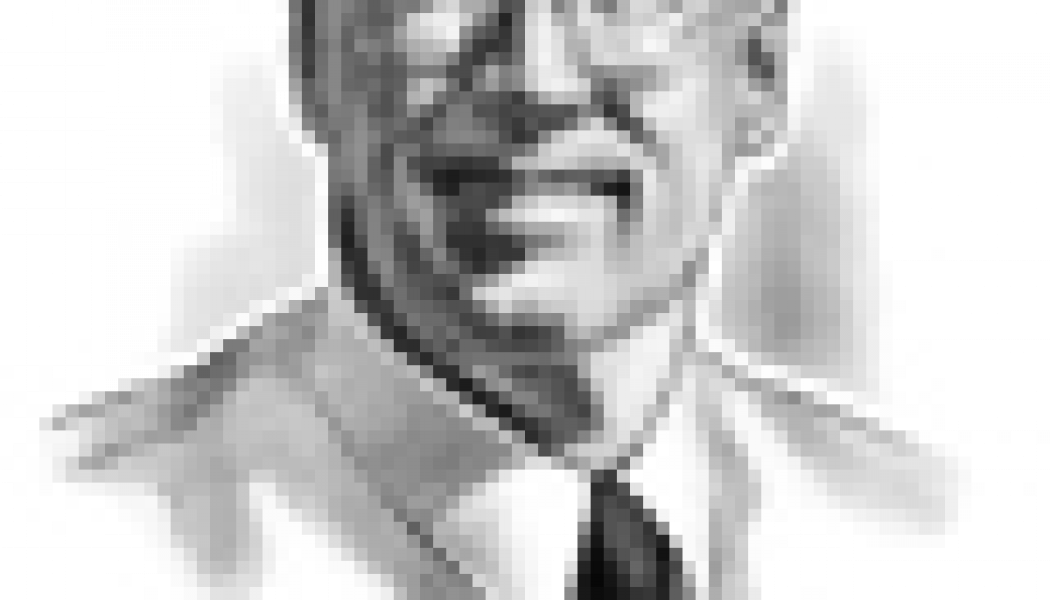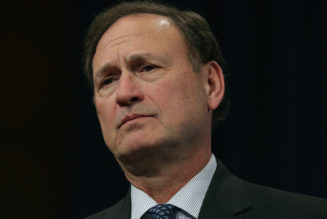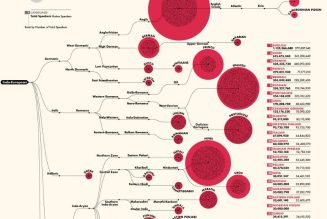By Dr. Jeff Mirus ( bio – articles – email ) | Jan 17, 2020
When my children were young and played games together, my younger daughter sometimes infuriated the others when, after she had lost a game, she would declare: “In my mind, I won.” She wasn’t completely serious, but she certainly frustrated the winners. But wait: We live in a society in which a great many people do the same thing and believe it. This frustrates me, too.
I am referring not to games but to life. We live in an era in which people seem to think that reality is whatever the make up in their own heads, and that they are really winning when they make extraordinarily bad choices. Willfulness—even if it often arises from a herd mentality—is rampant. It seems that we may believe whatever we want (at least as long as it is something fashionable), and become whatever we want, even if it is something that destroys us.
Fair warning: This leads back to the N word: Nature.
Individualism
Many ascribe the current chaos to the individualism which has arisen over the past three hundred years, and this is certainly a significant factor. It is one of the paradoxes of history that our political emphasis on liberty and equality has tended to sweep away both authority and intermediary institutions between the person and the State, leaving only desire and power in its wake. We are accustomed to seeing ourselves now not as part of families and guilds and churches and communities and commonwealths, but as individual voters who control whatever corporate destiny remains to us through the sheer accumulation of individual votes. This is corrosive of the common good because it reduces everything to individual self-actualization on the one hand and coercive politics on the other.
We can identify landmarks along the way to what we commonly regard as political “emancipation”, and this alleged emancipation clouds many of our judgments about our roles in society and in the economic order, not to mention its impact on the way we conduct our personal life. The loss of effective intermediary institutions, the decline of the Church, and the devastation of the family as a stable and foundational social unit are all easily relatable to modern political notions of individual liberty.
One aspect of the resulting individual waywardness is our loss of any significant understanding of what used to be called the “common good”. We can grasp fairly easily that individual benefits ought to be spread as widely as possible, but we have lost our grip on what it means to hold significant goods (I do not mean “material possessions”) in common as a defining mark of a wide range of essentially social identities: the family, the local community, the parish, the several businesses in which we are involved, the region, the nation, and so on.
These identities are natural to the human person. We do not realize that the maximization of what we understand as individual goods—I mean the numerical spreading of so-called individual goods to more and more people—is very often at odds with the goods each community of persons must hold in common. The result is often disunity, discontent, and even despair as personal and social bonds are dissolved. Such bonds are, after all, at odds with “individualism”.
Forgetfulness of Nature
Our sense of nature itself has been warped into an individualistic counterfeit. We think of getting back to nature as getting back to a time of individual freedom without higher powers of any kind interfering with our frolicking self-determination. The presupposition is that in a state of nature everything is reducible to the individual, a notion proved ludicrous instantly by the very nature of human reproduction. But we refuse to accept the obvious, and it is just here that we encounter one of the most corrosive features of our era—the willingness to eliminate nature by reducing it to raw individual gratification.
It seems clear that both the progressive urbanization of Western societies and the explosion of technology over the same period have tended to put our sense of “nature” in the rearview mirror. That is not at all surprising, but we should reflect on how recent a development this is in our history. In the United States, the population was predominantly rural until the 1930s. The rapid explosion of technology, especially as a vehicle for entertainment, can be traced to roughly the same time period. The radio industry in the United States did not begin until 1913; television manufacture began in 1928 and spread rapidly beginning in the 1940s.
Then there is the computer. Personal computers began a long process of development in the 1950s. By 1959, the concept of computer-generated “virtual reality” was developed (as if the alternative realities convincingly created by the movie industry were not enough). Today it is not uncommon for the younger generation to spend large amounts of time within alternative “realities” generated and controlled by computers. The point is simply that we tend to be divorced from nature and, through the confluence of a number of different circumstances, we find it easy to conceive of nature not as something “given” with a “purpose” but as accidental material to be manipulated in accordance with our own desires.
It goes without saying that the human person has “manipulated” nature from the beginning. There is a strong sense even in the Judeo-Christian tradition of the goodness of the human person being rooted in God and in continuing God’s work in natural things. But such reflections are always within the horizon of the Creator’s own purpose. A society that has managed to shield itself effectively from the fundamental realities of natural being—a society which resides almost entirely in what we might call artificial environments and participates largely in what we might call artificial activities—will find it much easier to see nature not as something through which we are defined and by which we understand ourselves, but as something which we are to learn to manipulate only so that we can change it to suit ourselves.
The Way Back
Let’s face it: We moderns are nurtured in a culture of individual desire in the land of make-believe. This has horrendous repercussions because we actually do have a given nature, and we are incapable as finite beings of escaping our fundamental giftedness. Our pride and concupiscence balk at the notion of gift, for it requires a giver. We hide in our own darkness, finding it increasingly difficult—to cite but one example—to sense the given moral law as a framework of being that is not arbitrary but rooted in the very nature of what we call “the real”.
Some sense of the natural law is still present of course: Just consider how quickly young children begin to say “That’s not fair!” Or how all but the speaker are frustrated by the assertion that “In my mind I won.” But as we are pushed into increasing artificiality as we “mature”, we are tempted by increasingly outlandish and even unnatural possibilities which war against essential permanent realities like genuine authority, the common good, and our given nature—realities in which our own happiness is inescapably rooted.
It is difficult to know exactly where to place the emphasis (short of conversion to Christ, which is always a possible response to the tortures of human despair). But weaning ourselves from virtual reality and getting closer to nature can be a very salutary exercise in nurturing a deeper apprehension of reality. Learning more about the common good and about both the necessity and the nature of authentic authority (the two words are redundant) can also be very helpful, for authority derives from the “author”, and we are not the authors of either our own being or of the common good.
Happily, on the vexing question of authority and the common good, I can actually recommend a simple and enjoyable place to start. Listen to Episode 56 of The Catholic Culture Podcast, in which Thomas V. Mirus interviews the Dominican priest Aquinas Guilbeau, on a topic as challenging as it is delightfully persuasive: Vindicating Authority.
Sound Off! CatholicCulture.org supporters weigh in.
All comments are moderated. To lighten our editing burden, only current donors are allowed to Sound Off. If you are a donor, log in to see the comment form; otherwise please support our work, and Sound Off!

There are no comments yet for this item.










